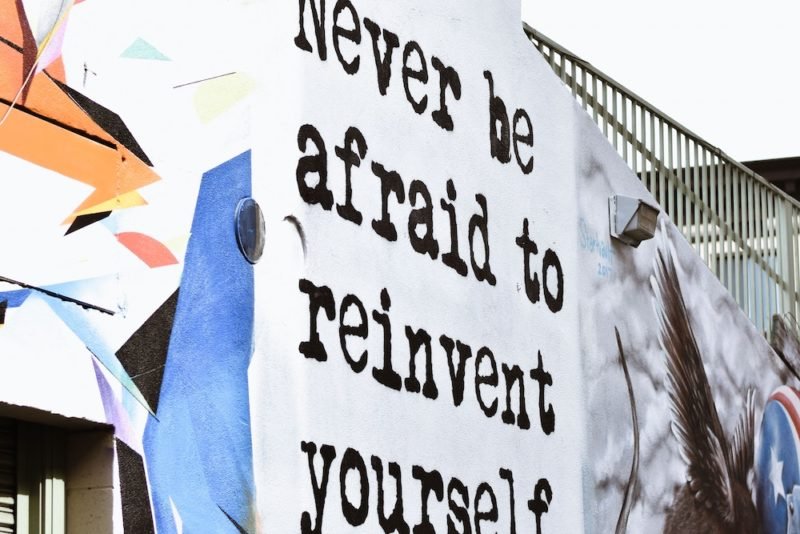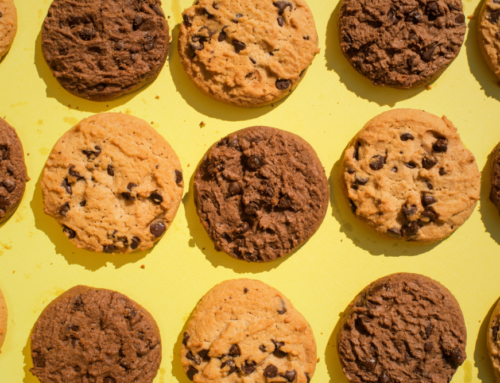
Change is hard. Or, at least, change feels hard. Most of us are wired to maintain the status quo rather than to shake the tree. Why else do so many people stay in soul-sucking jobs or in relationships (whether friendship or romantic) that generate more stress than warm feelings? Heck, some people practically have to gather a dozen opinions and take a tranquilizer (or a glass of wine) before they can change the hairstyle they’ve had for years.
Well, making the decision to move from mindlessness to mindfulness is also a pretty big change, because mindfulness is a skill that develops only with practice, time and patience. And like any new skill, it can feel a little odd or even awkward when you start to retrain your brain…which is really what mindfulness is!
But while change can feel hard or odd or awkward—or even a little scary—it’s inevitable (in some cases) and necessary (in others). And if we want to keep growing and evolving, rather than collecting moss (metaphorically), then we need to change. One way to give yourself the nudge you need to implement a change is to consider the costs of not changing.

Costs of mindlessness
If you know that you tend to default to mindlessness, do any of these statements ring true to you?
- I sometimes feel like my life is moving too fast, and that it’s challenging to notice—let alone appreciate—its little (or even big) moments?
- I find it hard to “manage” my mind as it races from one thought to another?
- My mind often gets stuck replaying the past or trying to forecast the future. (Note, it’s possible that your mind is doing this but you’re not noticing it, as is the case with many people.)
- I often look down at my empty (or nearly empty) plate, and I don’t remember eating the food that was there.
- I frequently act—or speak—without thinking, throwing up my hands at rude drivers or snapping at coworkers, friends or loved ones with words that I wish I could take back.
If you said, “Yes, that sounds like me” to any of these, then what are the costs of not doing the work to become more mindful? More missed moments? Continued feelings of chaos? Additional stress? More “missed” meals? Damaged relationships?

Mindfulness defined — and why it’s worth cultivating it
Jon Kabat-Zinn—who created the Mindfulness-Based Stress Reduction (MBSR) program and founded the Center for Mindfulness in Medicine, Healthcare and Society at University of Massachusetts Medical School—defines mindfulness as, “Paying attention in a particular way: on purpose, in the present moment, and non-judgmentally.”
When asking, “Why cultivate mindfulness?” first consider that when our default is mindlessness, it’s easy to be controlled by our thoughts and not even notice. As you develop your “mindfulness muscle,” you’ll find that you are less likely to become overly reactive or overwhelmed by what’s going on around you, or by what’s going on in your head, because you are actually noticing your thoughts, feelings and emotions—you’re becoming mindful.
Here’s where the “non-judgment” part comes in: Some of those thoughts, feelings and emotions you’re starting to notice might be uncomfortable (“I’m feeling angry”) or even make you cringe (“Wow, some of my thoughts are really mean”). If you judge yourself for having certain thoughts, you’ll want to ditch your mindfulness practice.

More acceptance, less emotional reactivity
Acceptance goes hand-in-hand with non-judgment. Now, accepting our thoughts, feelings and emotions doesn’t necessarily mean that we like them or have to resign ourselves to always having them. It means simply that we accept, right now in the present moment, that we are indeed having that thought, like it or not. When you get caught up in “I shouldn’t be having this thought/feeling this way,” then your discomfort increases.
This also applies to what’s going on in the environment around us. For example, if you are fuming about standing in a long line, and thinking that it’s unfair that you’re standing in line, you are going to have a very different experience than if you accept that you are standing in line, which is no one’s favorite thing (what you’re experiencing is part of the human condition), and that’s simply the way that it is at this moment in time.
The bottom line is that when you become aware of your thoughts non-judgmentally, you can decide if they are helpful, and let them go if they’re not. Your newfound awareness—and ability to notice your thoughts, feelings and emotions—gives you more choice in the actions you take, allowing you to stop living on autopilot and unhook from habitual, unhelpful patterns. You can respond to internal stimuli (those thoughts, feelings and emotions) and external stimuli (people, situations and events that tend to trigger potentially troublesome thoughts, feelings and emotions), rather than react.
The power of mindfulness
I’ve shared this TEDx talk from psychologist and professor Shauna Shapiro once before, but it feels especially pertinent here. I love her hopeful (and totally science-based) message that we have the capacity to change and re-wire our brains. Her personal story is inspiring, too.
Disclaimer: All information provided here is of a general nature and is furnished only for educational purposes. This information is not to be taken as medical or other health advice pertaining to an individual’s specific health or medical condition. You agree that the use of this information is at your own risk.
Hi, I’m Carrie Dennett, MPH, RDN, a weight-inclusive registered dietitian, nutrition therapist and body image counselor. I offer compassionate, individualized care for adults of all ages, shapes, sizes and genders who want to break free from eating disorders, disordered eating or chronic dieting. If you need to learn how to manage IBS symptoms with food, or improve your nutrition and lifestyle habits to help manage a current health concern or simply support your overall health and well-being, I help people with that, too.
Need 1-on-1 help for your nutrition, eating, or body image concerns? Schedule a free 20-minute Discovery Call to talk about how I can help you and explore if we’re a good fit! I’m in-network with Regence BCBS, FirstChoice Health and Providence Health Plan, and can bill Blue Cross and/or Blue Shield insurances in many states. If I don’t take your insurance, I can help you seek reimbursement on your own. To learn more, explore my insurance and services areas page.
 Print This Post
Print This Post






